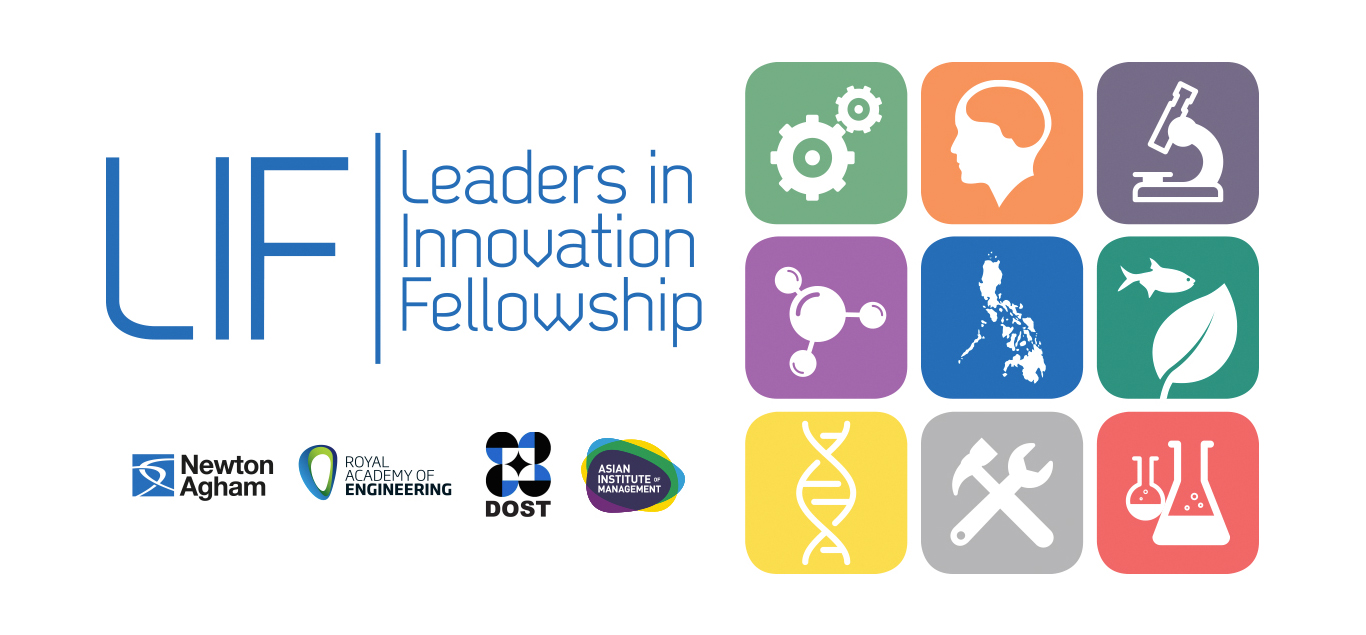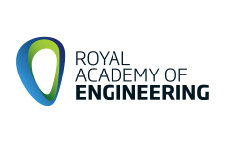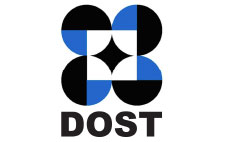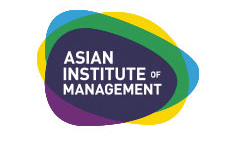
INSPIRING ENTREPRENEURSHIP AND COMMERCIALIZING INNOVATIONS
THE LEADERS IN INNOVATION FELLOWSHIP PROGRAM
Filipino researchers who qualify for the LIF program will spend a focused period of training and coaching in the United Kingdom. They will attend master classes given by Fellows of the Royal Academy of Engineering and enjoy opportunities for international networking.
The minimum requirement for researchers to qualify for LIF 6: Their technology should have received prior funding from the Philippine Department of Science and Technology.
A postgraduate certificate program established in 2014, LIF creates international networks of innovators, expert mentors, and technology entrepreneurs. On their return to the Philippines, LIF Fellows continue to benefit from ongoing training and support to push their commercialization plan forward.
Leaders in Innovation Fellowship is part of the Newton Agham Programme, a collaboration between the UK and Philippine governments to bolster science, research, and innovation. The LIF program is delivered by the Royal Academy of Engineering in partnership with the Philippine Department of Science and Technology and the Asian Institute of Management.
WHAT IS NEWTON AGHAM?
The Newton Agham (Science) Programme is a collaboration between the UK and the Philippines to advance science, research, and innovation. The UK Government, through its embassy in the Philippines, works with UK delivery partners and Philippine science and innovation institutions to implement programs that strengthen science and innovation capacity.
Partner institutions include the Department of Science and Technology and the Commission on Higher Education. UK delivery partners working in the Philippines include the British Council, Medical Research Council, Biotechnology and Biological Sciences Research Council, Research Councils UK, and the Royal Academy of Engineering.
Globally, the UK government launched the Newton Fund in 2014, a £735-million fund to support science and innovation partnerships with emerging knowledge economies. The Fund is part of the UK’s Official Development Assistance and covers three broad categories of activity.
- People – Increasing capacity in science and innovation, individually and institutionally, in partner countries
- Programs – Research collaborations on development topics
- Translation – Creating collaborative solutions to development challenges and strengthening innovation systems
The Partners

Royal Academy of Engineering
As the United Kingdom’s national academy for engineering, the RAEng gathers together the country’s top engineers from across relevant sectors. The purpose: to advance and promote engineering excellence.
The Academy provides analysis and policy support to reinforce the UK’s reputation as a great place to do business. Additionally, it takes the lead in engineering education and invests in research to boost innovation.
As an organization with a global outlook, the Academy uses international partnerships to benefit the UK in terms of networks, expertise, and investment.

Department of Science and Technology
The DOST is the premier science and technology body in the Philippines. It provides leadership, central direction, and coordination for all scientific and technological initiatives, policies, and programs to sustain national development.
The DOST is also tasked with developing local capability for the Philippines to achieve technological self-reliance, as well as encouraging greater private sector participation in research and development.
Originally founded as the National Science Development Board in June 1958, it was reorganized as the National Science and Technology Authority in March 1981 and given broader functions. In January 1987, the agency was elevated to cabinet-level status and given its present name.

Asian Institute of Management
AIM is the first school in Southeast Asia to receive accreditation from the US-based Association to Advance Collegiate Schools of Business (AACSB), regarded by the global academic community as the touchstone for business school quality.
AIM was founded in 1968 by a consortium of prominent business leaders, Philippine academic institutions, and the Harvard Business School. To date, it has over 8,800 degree-program graduates and a total of 43,000 alumni from 80 countries across all courses, who have profited from AIM’s proven, practitioner-based education.
The Asian Institute of Management kicked off celebrations for its 50th anniversary in 2018 with the unveiling of its new logo in March 2017.

